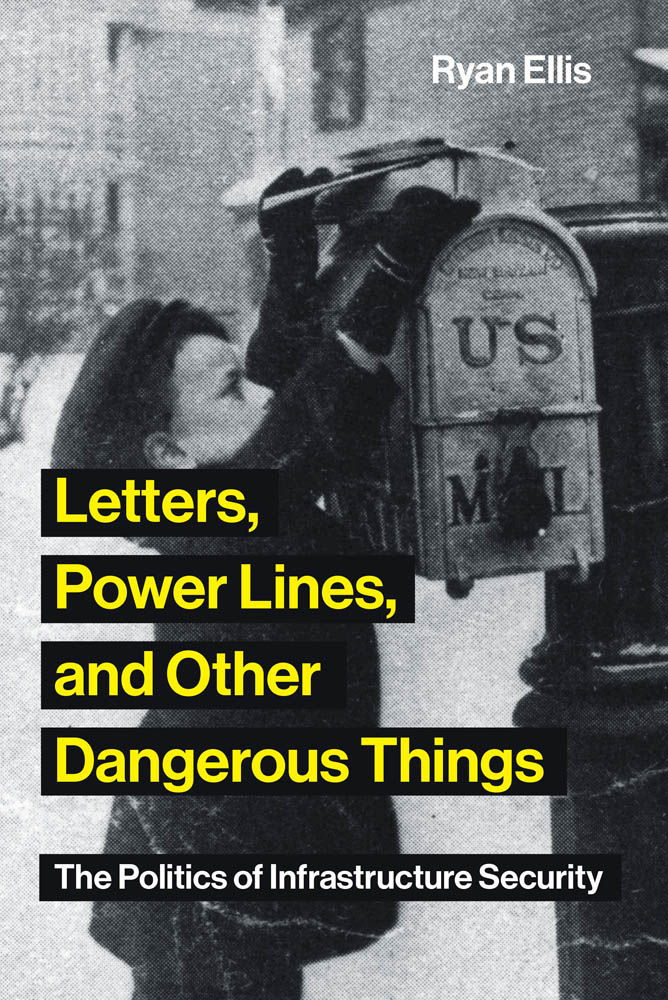
A new book by CAMD Professor Ryan Ellis, Assistant Professor of Communication Studies, provides an examination of how post-9/11 security concerns have transformed the public view and governance of infrastructure. Letters, Power Lines, and Other Dangerous Things: The Politics of Infrastructure Security, which offers new insights into the political origins of critical infrastructure vulnerability, argues that decades of deregulation resulted in infrastructures that were increasingly vulnerable to attacks and failures. Post-9/11 security changes, however, in some cases began to allow public supervision and accountability to be restored to these infrastructures; Professor Ellis argues that it has been a “stunning transformation.”
The book, published through MIT Press, is taking on a new relevance and applications in the midst of the current COVID-19 pandemic.
It reveals how, during the 2001 anthrax attacks, postal workers faced new risks and hazards to their health and safety, concluding that commercial concerns (of advertisers and others that use the mail for business) trumped worker safety.
“Now, we are again seeing this play out,” said Professor Ellis. “Postal workers are once again pleading with management to take their safety and health seriously. Will things be different this time? Or will commerce trump health and safety?”
Letters, Power Lines, and Other Dangerous Things: The Politics of Infrastructure Security also looks at the structural roots of infrastructure failure.

“The book uncovers how decades of deregulation created new types of infrastructure risks—lean and efficient infrastructures are prone to fail, as the current moment and stress around global supply chains now makes plain,” Professor Ellis continued.
The book relates to Professor Ellis’s research and teaching, which both focus on topics related to communication law and policy, infrastructure politics, and cybersecurity.

